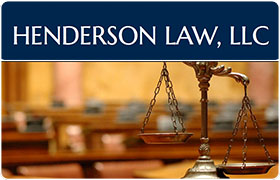Summit Juvenile Law Lawyer, Mississippi
Sponsored Law Firm
-
 x
x

Click For More Info:
-
Henderson Law, LLC
115 North Cleveland Avenue Brookhaven, MS 39601» view mapDUI, Criminal Defense, Traffic Offenses, Burglary Mississippi Criminal Defense Lawyer
Henderson Law, LLC is committed to helping people overcome the serious effects of being arrested and accused of a crime.
800-939-0830 -
- Contact
- Practice Areas
- Visit:
- Website
- Profile
Not enough matches for Summit Juvenile Law lawyer.
Below are all Summit Criminal lawyers.
Heather White Martin
✓ VERIFIEDCriminal, Family Law, Estate
Heather White Martin is a practicing lawyer in the state of Mississippi handling family law cases.

 Edward Henderson Brookhaven,MS
Edward Henderson Brookhaven,MS About UsEdward Henderson
About UsEdward Henderson Contact UsCall or Email Now!
Contact UsCall or Email Now!

